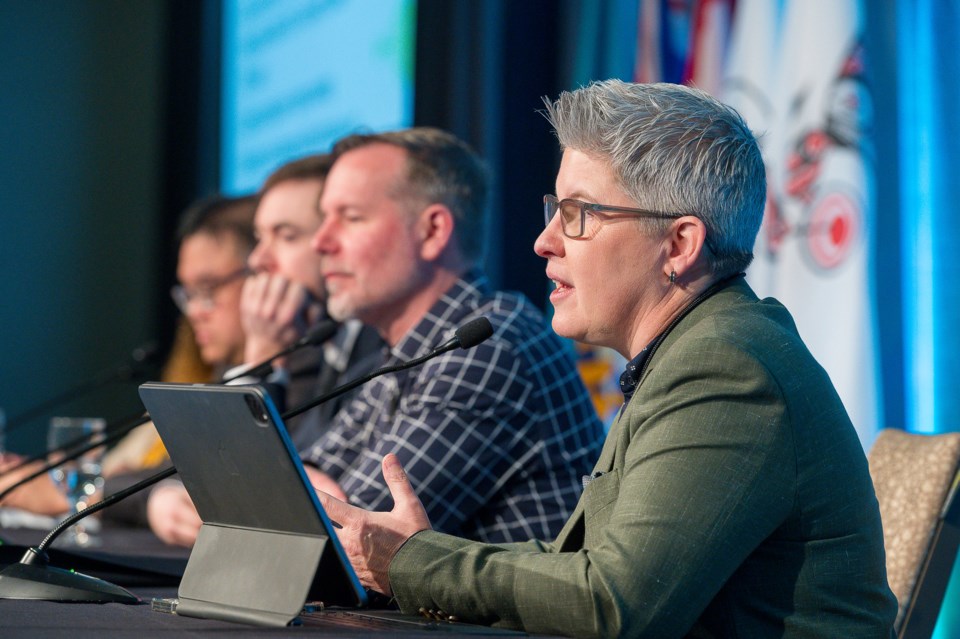New expert estimates are further illustrating the immense scale of B.C.’s housing crisis.
The province will have to build somewhere in the range of 500,000 to 700,000 housing units by 2030 to restore 2003 and 2004 levels of affordability, according to Braden Batch, lead economist for B.C. at the Canada Mortgage and Housing Corp.
Speaking at a panel discussion Wednesday at the Union of BC Municipalities housing summit in Vancouver, he said that this range already accounts for housing that the province is on track to build. Batch said it is also based on low, medium and high population projections, meaning that numbers may differ based on which projection becomes reality.
“This is the scale of the problem as we see it,” he said.
“It means we'd have to build something like 15,000 housing starts in the City of Vancouver alone over the next seven years to make that 2030 count. That's two and a half times what we've done in the last 10 years,” said Batch, who specified that the Vancouver estimates are “back-of-the-envelope math.”
The province’s population as of the end of 2023 is estimated to be 5.5 million and will increase to 7.9 million by 2046.
In the Lower Mainland and Southwest region alone, the population is expected to reach 4.9 million in 2046, according to BC Stats.
“Do you think the housing today is a worse outcome than 20 years ago and you'd like to go back to maybe what it felt like 20 years ago? You have to build two and a half times more than what you've built in the last 10 years and somehow keep the costs down while doing that,” said Batch.
Wednesday's panel discussion provided data on population and housing to an audience of mayors and local government leaders.
The figures offered a snapshot of the kind of growth expected for the province, said Andy Yan, director of Simon Fraser University's City Program.
“Projections are not gospel,” he said. “And it's really about how numbers become the start of dialogue and how communities can change.”
B.C. has been losing residents to more affordable provinces such as Alberta.
Roughly 8,000 people came to Metro Vancouver alone from other parts of B.C. between 2006 and 2021, according to census data.
However, between 2006 and 2016 the outflow from the region was approximately 13,000 to 15,000 people. This increased to 20,000 in the last census period, according to Heather McNell, deputy chief administrative officer of policy and planning with Metro Vancouver.
“That's a pretty significant change,” said McNell. “That's in part because of an aging population and also in part because of immigrant dispersion,” she said, adding that many people are heading to the Fraser Valley.




